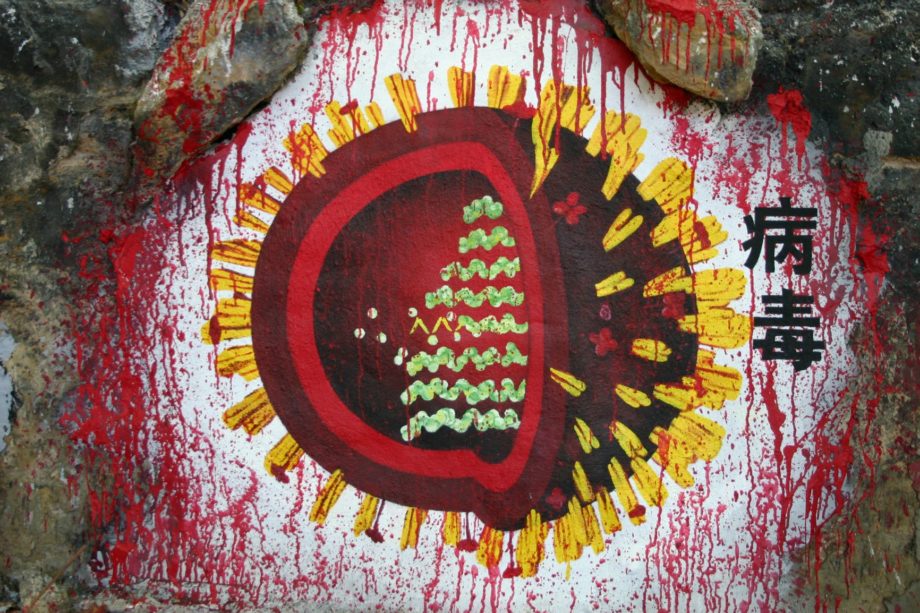Chasing the Crisis
– on the “Coronification” of anthropological research
Adaptation to new circumstances is a critical skill in times of crisis. Over the course of 2020, singles around the world had to adapt to loneliness, families and roommates to being locked in with each other, so-called non-essential workers to unemployment, whole societies to the “the hammer and the dance” as lock-downs were lifted and researchers to interruptions of their work or, if at all possible, to digital methods. Pandemic response measures along with strategies of adaptation are continually contested, in the names of safety, solidarity but also freedom and its infringement, oscillating between “is this necessary?” and “is this enough?” (not to mention “is this real?” and “who is right?”). As ethnographic researchers, we also ask ourselves to what extent we must adapt our research plans. The most pressing question of course is what to do when face-to-face fieldwork is not possible, and so the last few months saw a proliferation of blogs and special issues of perhaps long overdue reflections on digital and auto-ethnography and other “alternative” research methods. Here I would like to reflect not on the means, but the objects of our attention. Where should we turn our gaze in times of crisis? As a junior researcher writing her first research proposal, this question haunts my attempts to plan ahead at my desk in my one-bedroom-turned-home-office. Janina Kehr recently wrote of the desire to not write about Covid-19, to capitulate in the face of the unattainability of a critical distance. With Foucault she describes the sinister quality emanating from the proliferating discourse on Covid-19, and the desire to not try to analyze while being stuck in the middle of it. With my actual fieldwork in Taiwan only meant to start in late 2021 at the earliest, there is a similar temptation to just go on as planned, as if nothing happened, to hope that I can just sit this one out. On the other hand, my original research topic and envisioned field context now sometimes seem strangely anachronistic to me, a project from a different time. (When) will this dust settle? And how should I adapt?

“Approach of the Apocalypse” by Chris Tarnawski, Licence: CC BY-NC-ND 2.0.
De(/con?)structive interferences and linkages
Following the theme of the autumn school I too want to write about ethnography in times of crisis. But instead of honing in on the novel coronavirus I am extending my view to the general tectonic shifts of 2020, an entire year of crisis, holding catastrophic events in succession, all entangled in de(/con?)structive interference. Analysts are busy determining to what extent the Covid-19 pandemic has caused or exacerbated some of these larger shifts and political tensions. Some for example have suggested the role pandemic related unemployment and shelter-in-place orders have played for the force behind the Black Lives Matter protests in the US and worldwide after the murder of George Floyd. Already tense international relations seem spiked to the edge of overt conflict, such as in the case of the ever present talk of the “Decoupling” of China and the US, accompanied by media-fueled discourses of blame and demonization regarding each other’s handling of the pandemic. The continuing noise of pandemic threat is accompanied by the intensifying roar of the effects of climate change, arriving in the here and now with violence and as quickly as the most alarming estimates predicted. While an almost car- and airplane free spring was cause for hope in this regard, devastating fires and the approaching winter (recall the German debates about outdoor gas heaters) constitute a bleak rollback. Facing these threats, societal organization seems at a breaking point with authoritarian tendencies and public mistrust in governments and expertise on the rise. How do we account for these developments in our research? Is there an obligation to reorient ourselves towards these pressing issues from whatever it was that we were doing before? Perhaps a topic, a locale untouched by this has even become unthinkable?
It should go without saying that an anthropological archive of the current times is crucial, and many have pointed out the potential of a revitalized public anthropology. Judith Beyer, for example, argued that exactly the “voices of prudence” of anthropologists could take on the role of mediators between often polarized medical and moral discourses of necessary measures, and legal ones of freedom and personal rights, more and more caught in a hysterical spiral of sometimes willful misunderstanding. According to Beyer our “diligent observation”, the ability to “read across the disciplines” and to monitor various media should be brought to the public, although: “It might be that not many want to hear us out. We tend to make things more complicated. But we should keep trying because that is exactly what they are.”

More complicated than it looks. The Chinese characters read bìngdú – Virus. By Thierry Ehrmann, Licence: CC BY 2.0.
Research for a life after Covid-19
But on the other hand there is a sense of nervousness in the scrambling for ethnographic accounts (again I think of Kehr) and I feel the pressure to chase after the pandemic, whether that is where I can best apply my skills and interests or not. This reminds me of the often described change in the passage of time during the pandemic, but in a different sense – as though there is no tomorrow, and all intellectual (or indeed all) labor shall converge in this last singularity of a matter of concern (Latour 2004). But certainly there will be an after, in which the Covid-19 pandemic and its accompanying crises will turn into regular situatedness. They will have changed the world, that much is sure, but sometimes I wish our adaptations may reach further into the future.
My own planned research project is aimed at an anthropological exploration of Taiwan’s regional and international public diplomacy. As an internationally marginalized government, there is a particular need for Taiwan to rely on the establishment of even informal diplomatic ties and the development of soft power (Rockower 2011). Initiatives to achieve this range from cultural, academic and professional exchange, to medical missions and foreign aid (Alexander 2015). I am particularly interested in the role of Chinese medicine in President Tsai Ing-Wen’s so-called “New Southbound Policy,” a government initiative to increase cooperation and friendly relations predominantly with countries of the ASEAN region. At the time of conception, spread out over the last couple of years, such a focus seemed to make perfect sense and to be attuned to political developments. Tensions with China intensified, and an alternative network of relations seemed to fit also with a shifting academic focus on multidirectional and complex postcolonial relations in the field of global health (Dilger and Mattes 2018).
Now, at least on a surface, public-media level, polarized political relations are at the forefront of concern. In the case of Taiwan, the crystal ball is currently directed at US-China relations, the process of decoupling, and how it might affect the island nation. More overtly, fears of military aggression and even invasion become as tangible as never before after China’s crackdown on Hongkong. A Taiwanese friend recently expressed concern about staying in Germany because of escalating Covid-19 infections but was also hesitant to plan a return to Taiwan with cross-strait relations so threatening at the moment. One might get the impression that the window of opportunity to shine a light on unlikely allies and South-South-Cooperation is over and the focus has gone right back to old and deepened fault lines.
Sure enough I could refocus my project on Taiwanese-European or -US relations, or look at how Chinese medicine in Taiwan is being involved in research and treatments around Covid-19, as is happening in the PRC (see Helen Tilleys comprehensive article on Somatosphere). That way I would make sure to do my anthropological duty of documenting the pandemic moment. But is there time to research matters a step removed from these hot topics? The answer is only no if this is truly the end of history. Keleman Saxena and Johnson challenge us to slowly learn to distinguish sound from noise during all this. Perhaps taking a step back and following different paths is a worthwhile way of slowing down and seeing ripple effects we would otherwise overlook. Crisis might catch up with us in the end anyway, whether we plan on it or not.
Written on 5 October 2020 and revised on 9 October 2020
Karoline Buchner is a research associate at the Institute of Social and Cultural Anthropology at Freie Universität Berlin, research department of Medical Anthropology. After earning her degrees in East Asian studies and Social and Cultural Anthropology, she first became a research associate at the Institute for Chinese Life Sciences at Charité Berlin, working on a database project on Chinese historical healthcare manuscripts. She conducted field research on lay knowledge as well as informal and professional Chinese medical education in Taiwan and is now preparing a doctoral project on health diplomacy in Taiwan and South East Asia. Contact: karoline.buchner[at]fu-berlin.de
References
Alexander, Colin. 2015. Development Assistance and Communication: The Case of the Taiwan International Development Fund. Journal of Global Governance 21 (1), 119–39.
Dilger, Hansjörg, and Dominik Mattes. 2018. Im/mobilities and Dis/connectivities in Medical Globalisation: How Global Is Global Health? Global public health 13 (3), 265–75. doi:10.1080/17441692.2017.1414285.
Latour, Bruno. 2004. Why Has Critique Run Out of Steam? From Matters of Fact to Matters of Concern. Critical Inquiry 30 (2), 225–48. doi:10.1086/421123.
Rockower, P. 2011. Projecting Taiwan: Taiwan’s Public Diplomacy Outreach. Issues and Studies: A Social Science Quarterly on China, Taiwan and East Asian Affairs 47 (1).































